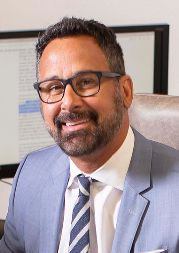Workplace shootings, more common than ever now, may happen in the course and scope of employment. But do they have to be work-related to make the victims eligible for workers’ compensation benefits?
That’s the question that a Florida appeals court wants the state Supreme Court to answer in a closely watched case that, potentially, could overturn years of precedent.
In Normandy Insurance Co. vs. Mohammed Bouayad and Value Car Rental, a panel of Florida’s 1st District Court of Appeals on Wednesday set aside an administrative law judge’s award of benefits to the claimant. But the panel also took the unusual step of asking the high court to answer a question of great public importance: “When an act of a third-party tortfeasor is the sole cause of an injury to an employee who is in the course and scope of employment, can the tortfeasor’s act satisfy the occupational causation element … necessary for compensability?”
The claimant’s lawyer, Michael Winer, of Tampa, said he plans to ask the full, 13-judge appeals court to rehear the case. Short of that, he will join in asking the Supreme Court to weigh in. If it stands, the appellate court’s reasoning would create two standards – one for assaults and one for accidents, Winer said Wednesday.

“That’s just absurd,” he said.
Under the DCA panel’s opinion, employee injuries and deaths from mass shootings, such as those at Marjorie Stoneman Douglas High School in Parkland in 2018 and at the Pulse Nightclub in Orlando in 2016, would likely not be compensated, Winer said. That’s contrary to multiple court rulings through the years, he argued.
William Rogner, attorney for Normandy Insurance, said the Bouayad decision is “not revolutionary,” and simply underscores statutory and case law that has long held that injuries from workplace violence are not compensable if the incident is not work-related. Robberies, assaults by co-workers or customers are usually covered.
“It’s no different than many other cases that have been decided by the court,” Rogner said. “For example, if it’s a disgruntled lover that comes to the jobsite and shoots or stabs the worker, that’s not covered.”
The Bouayad case was complicated by the fact that the shooter was never identified, and questions remain about his motives.
The shooting happened in June 2019. Bouayad was the general manager for Value Car Rental at the Orlando International Airport Holiday Inn. At the end of his shift late one night, he was walking from the rental car kiosk to an outside office when a man emerged from a darkened area and shot Bouayad at least seven times at close range, the court opinion explained.
Security video showed the assailant did not attempt to rob the victim. When a hotel guest came to Bouayad’s aid, Bouayad told the guest that “Robert shot me,” and to warn police to be on the lookout for a blue Ford Mustang car.
Bouayad survived but suffered severe injuries to his arms, leg, stomach and brain. He later had several strokes, lost a kidney and part of his vision.
He filed a claim for workers’ compensation medical and wage-replacement benefits. But Boca Raton-based Normandy Insurance, the rental car company’s comp carrier, denied the claim. The insurer argued that the shooting stemmed from a simmering conflict between a man known as Robert Aponte and Bouayad’s son. The day before, Bouayad’s son and the youth’s mother had been physically confronted by Aponte and another person over an alleged debt, the court wrote.
But police never arrested Aponte in connection with the shooting and witnesses did not identify him as the shooter seen in the video. At the trial, Bouayad changed his story, contending that “Robert” was not the shooter and the attack was actually work-related. Three employees of the rental firm had been fired in the weeks preceding the shooting.
The claimant’s attorney also presented expert witnesses who testified that the crime rate was higher near the hotel than in Bouayad’s neighborhood, but Normandy’s expert said the opposite. Bouayad was a victim of targeted, premeditated violence, not a robbery, the insurer insisted.
The judge of compensation claims found that the evidence did not establish the identity or motive of the assailant, but the judge noted that the claimant’s employment “substantially contributed to the risk of injury,” above what Bouayad would have seen outside of work. Upon rehearing, the compensation judge said that the assault was a targeted attack, but most likely related to the termination of another employee.
Normandy Insurance appealed to the 1st DCA, where workers’ comp appeals are heard. The court explained that under Florida’s compensation statutes the injury must arise “out of work” and be “performed in the course and scope of employment.”
And, crucially, the employee has the burden to show that both requirements are met, according to previous court decisions, one dating back to 1941.
The worker and the employer/carrier agreed in court proceedings that the shooting injuries occurred in the course and scope of employment. But Bouayad did not prove that the incident was work-related, the appellate judges found, and the employer did not have to show that the shooting was personal in nature.
The workers’ compensation statute “does not cover workplace injuries,” reads the DCA opinion, written by Judge Lori Rowe. “It covers work-caused injuries.”
Previous case law has established that in most injuries caused by accidents at work, the claimant needs to show only that he was engaged in some type of exertion at work, such as walking. But in the shooting scenario, it’s a little different, the court said.
“It is unreasonable to suggest that the mundane exertion of walking to get around work can be ‘causally connected’ with an injury from a shooting—unless perhaps the employee is working at a gun range,” Rowe noted. “Even with the ‘any exertion’ test, the claimant must still show a causal connection between the exertion and the injury.”
Winer, the claimant’s attorney, said such reasoning creates a double standard. For accident-caused injuries, the injury is almost always considered compensable.

“However, for assault cases, claimants are now given the impossible task of establishing a work-related motive for the assault, which means that you have to locate the assailant, and then get him to testify, against his right against self-incrimination, that the reason for the attack was work-related,” Winer said.
Judge Thomas Winokur wrote a concurring opinion, noting that the law requires a claimant to prove the injury was caused by work, and the crime risk at a premises is irrelevant.
Judge Susan Kelsey dissented from the DCA’s majority opinion, suggesting it runs contrary to the legislative intent to make the comp system quick and self-executing.
“The majority’s ‘arising out of’ analysis makes two mistakes we have rejected before,” she wrote. “First, the majority asks whether the criminal had a work-related motive—whether the crime was work-related—then denies compensability because that is impossible to prove here.”
Neither the workers’ comp act nor Florida case law “has ever required a claimant to show an assailant’s work-related motive,” Kelsey wrote. “To the contrary, where assailants have injured claimants who were at work and working, we have consistently found compensability without evidence of the assailant’s work-related motive.”
Winer added that if the Supreme Court declines to answer the certified question, or sides with the DCA panel’s majority, it essentially would mean that there’s no remedy allowed under the workers’ compensation system. That could open the door for Bouayad and other workplace shooting victims to file tort suits against employers – litigation that the grand bargain of workers’ comp was designed to prevent. Workers’ comp insurers may benefit, but employers could face expensive negligence lawsuits.
Meanwhile, Bouayad has been left without workers’ compensation coverage for his medical treatment and home care for the past four years, Winer said. Without comp benefits, the cost will shift to taxpayer-funded programs, such as Medicare, Medicaid and Social Security disability, or to private insurance plans to provide for his care, he argued.
Was this article valuable?
Here are more articles you may enjoy.

 LA County Told to Pause $4B in Abuse Payouts as DA Probes Fraud Claims
LA County Told to Pause $4B in Abuse Payouts as DA Probes Fraud Claims  Tesla Sued Over Crash That Trapped, Killed Massachusetts Driver
Tesla Sued Over Crash That Trapped, Killed Massachusetts Driver  China Bans Hidden Car Door Handles in World-First Safety Policy
China Bans Hidden Car Door Handles in World-First Safety Policy  Credit Suisse Nazi Probe Reveals Fresh SS Ties, Senator Says
Credit Suisse Nazi Probe Reveals Fresh SS Ties, Senator Says 